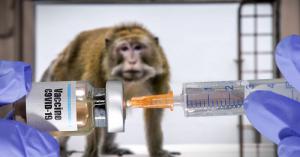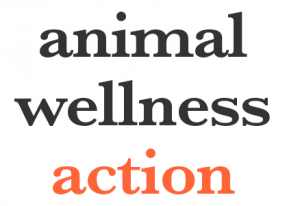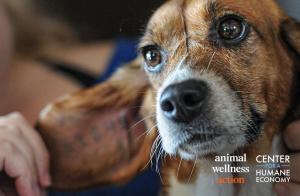U.S. House Passes Legislation to End FDA Animal Testing Mandate
FDA Modernization Act rider will spare animals, drive down drug prices, and produce safer treatments and cures
Animal tests, in large part, are not predictive of the human response to drugs, with very high failure rates when the drugs go to clinical trials.”
WASHINGTON, DC, USA, June 9, 2022 /EINPresswire.com/ -- In a legislative action that has the potential in the coming years to prevent the use of millions of animals and to deliver safer, more effective drugs to countless patients in need of treatments, the U.S. House of Representatives overwhelmingly passed the FDA Modernization Act as a rider to a larger package of FDA-related reforms. The Senate Health, Education, Labor and Pensions Committee has released its own FDA reform package, and that measure also includes the FDA Modernization Act language. — Rep. Vern Buchanan, R-Fla.
Democrats and Republicans united in 2021 to introduce the FDA Modernization Act, H.R. 2565 and S. 2952, to reform our drug approval process and to drive the use of non-animal testing methods. Addressing the category of testing that runs through the largest number of animals, the FDA Modernization Act is included as Section 701 in a legislative package known as the Food and Drug Amendments of 2022, H.R. 7667. The vote on H.R. 7667 tonight was 392 to 28.
“Leaders of the House and lawmakers from both parties, recognize that the United States must lift an archaic animal-testing mandate for drug development and replace that strategy with 21st-century methods grounded on human biology,” said Wayne Pacelle, president of Animal Wellness Action. “This is the biggest policy development in Congressional history on the fight to replace animal testing with morally and scientifically superior methods.”
E&C Committee Chairman Frank Pallone, D-N.J. and Ranking Member Cathy McMorris Rodgers, R-Wash., along with Health Subcommittee Chairwoman Anna Eshoo, D-Calif., and Ranking Member Brett Guthrie, R-Ky., were all active supporters of this provision. AWA also singled out House Energy and Commerce Committee members Buddy Carter, R-Ga., Kurt Schrader, D-Ore., and Tony Cardenas, D.-Calif. for helping lead the effort in committee.
Our drug development paradigm, framed by the Federal Food, Drug, and Cosmetics Act (FFDCA) of 1938, relies on animal tests for safety and efficacy evaluation. Data show that it typically takes 10 to 15 years and an average investment of $1 billion and up to $6 billion for a new drug. Animal tests are non-predictive of the human response to drugs, failing in 95 percent of cases when they go to human clinical trials. This antiquated process of pharmaceutical innovation slows delivery of palliatives and cures for patient groups, drives up drug costs, and sacrifices countless animals, including mice, rats, dogs, and non-human primates.
"Our drug development paradigm needs a reboot, and this bill moves us in that direction in one simple but meaningful way,” noted Rep. Vern Buchanan, R. Fla., the lead author of H.R. 2565. “Animal tests, in large part, are not predictive of the human response to drugs, with very high failure rates when the drugs go to clinical trials."
“I have heard from concerned citizens about their opposition to using dogs, primates, and other animals in testing protocols,” said Rep. Elaine Luria, D-Virg., the lead Democrat on the House bill. “We should be enthusiastically endorsing the idea of avoiding harm to animals when we can do so.”
“As a pharmacist, I know we can do better on drug pricing, delivery times to patients by improving both safety and effectiveness as well,” noted Rep. Buddy Carter, R. Ga., who led the fight for the provision in Energy and Commerce Committee. “I also know we can do better when it comes to preclinical testing methods and apply 21st century strategies that rely on human biology, not so much on beagles.”
"I was a veterinarian, and any testing that can be done without the use of our 4-footed animal friends, I think is to our advantage and certainly to their advantage,” said Rep. Kurt Schrader, D-Oregon. “Precision medicine by using tissue cultures and some of the advanced techniques that I think we’re looking at here in the 21st Century is pretty exciting.”
"The passage of the FDA Modernization Act today is a significant step forward for not only the animal welfare community but researchers who have been forced for decades to rely on antiquated, burdensome animal testing mandates," said Rep. Nancy Mace, R-S.C. "I look forward to this landmark legislation being signed into law to reduce waste, save animals' lives, and streamline potential lifesaving medication for patients.”
Energy and Commerce Committee leaders slightly modified but kept intact the core provisions of H.R. 2565, the FDA Modernization Act, introduced last year by Reps. Vern Buchanan, R-Fla., Elaine Luria, D-Va., Nancy Mace, R-S.C., Mikie Sherrill, D-N.J., and Brendan Boyle, D-Pa. H.R. 2565 has been cosponsored by 48 House Democrats and 38 House Republicans. A Senate companion bill, S. 2952, was introduced by Senators Rand Paul, R-Ky., Cory Booker, D-N.J., Ben Ray Lujan, D-N.M., Mike Braun, R-Ind., and John Kennedy, R-La., and also attracted a broad set of Democrat and Republican cosponsors.
“The most predictive technologies in existence should be available to drug sponsors to provide the safest and most effective medicines for patients,” said Gary K. Michelson, M.D., Founder and Co-chair, Michelson Center for Public Policy.
“We are already on the verge of the next phase of modern drug development, and FDA modernization will be the catalyst for this transition to modern science,” noted Tamara Drake, director of research and regulatory policy at the Center for a Humane Economy.
“Drug testing requirements have not kept pace with scientific innovation, and both the public and animals have suffered for it,” said PETA Senior Vice President of Laboratory Investigations Kathy Guillermo.
The Center for a Humane Economy, Animal Wellness Action, the Animal Wellness Foundation, the Michelson Center for Public Policy, SPCA International, National Medical Association, Emulate Inc., PETA, Citizens for Alternatives to Animal Research and Experimentation, the National Medical Association, the National Hispanic Medical Association, Teva Pharmaceuticals, Emulate, Nortis Bio, Beyond Celiac, the San Francisco AIDS Foundation, the United Leukodystrophy Foundation, Myositis Association, SPCA International, the Progressive Animal Welfare Society, and Pasado’s Safe Haven were among more than 150 organizations and businesses that endorsed the FDA Modernization Act.
Animal Wellness Action is a Washington, D.C.-based 501(c)(4) organization with a mission of helping animals by promoting legal standards forbidding cruelty. We champion causes that alleviate the suffering of companion animals, farm animals, and wildlife. We advocate for policies to stop dogfighting and cockfighting and other forms of malicious cruelty and to confront factory farming and other systemic forms of animal exploitation. To prevent cruelty, we promote enacting good public policies and we work to enforce those policies. To enact good laws, we must elect good lawmakers, and that’s why we remind voters which candidates care about our issues and which ones don’t. We believe helping animals helps us all.
The Animal Wellness Foundation is a Los Angeles-based private charitable organization with a mission of helping animals by making veterinary care available to everyone with a pet, regardless of economic ability. We organize rescue efforts and medical services for dogs and cats in need and help homeless pets find a loving caregiver. We are advocates for getting veterinarians to the front lines of the animal welfare movement; promoting responsible pet ownership; and vaccinating animals against infectious diseases such as distemper. We also support policies that prevent animal cruelty and that alleviate suffering. We believe helping animals helps us all.
The Center for a Humane Economy is a non-profit organization that focuses on influencing the conduct of corporations to forge a humane economic order. The first organization of its kind in the animal protection movement, the Center encourages businesses to honor their social responsibilities in a culture where consumers, investors, and other key stakeholders abhor cruelty and the degradation of the environment and embrace innovation as a means of eliminating both.
Marty Irby
Animal Wellness Action
+1 202-821-5686
email us here
Visit us on social media:
Facebook
Twitter
U.S. Rep. Nancy Mace, R-S.C. and Animal Wellness Action Executive Director Marty Irby talk FDA Modernization Act
Legal Disclaimer:
EIN Presswire provides this news content "as is" without warranty of any kind. We do not accept any responsibility or liability for the accuracy, content, images, videos, licenses, completeness, legality, or reliability of the information contained in this article. If you have any complaints or copyright issues related to this article, kindly contact the author above.





